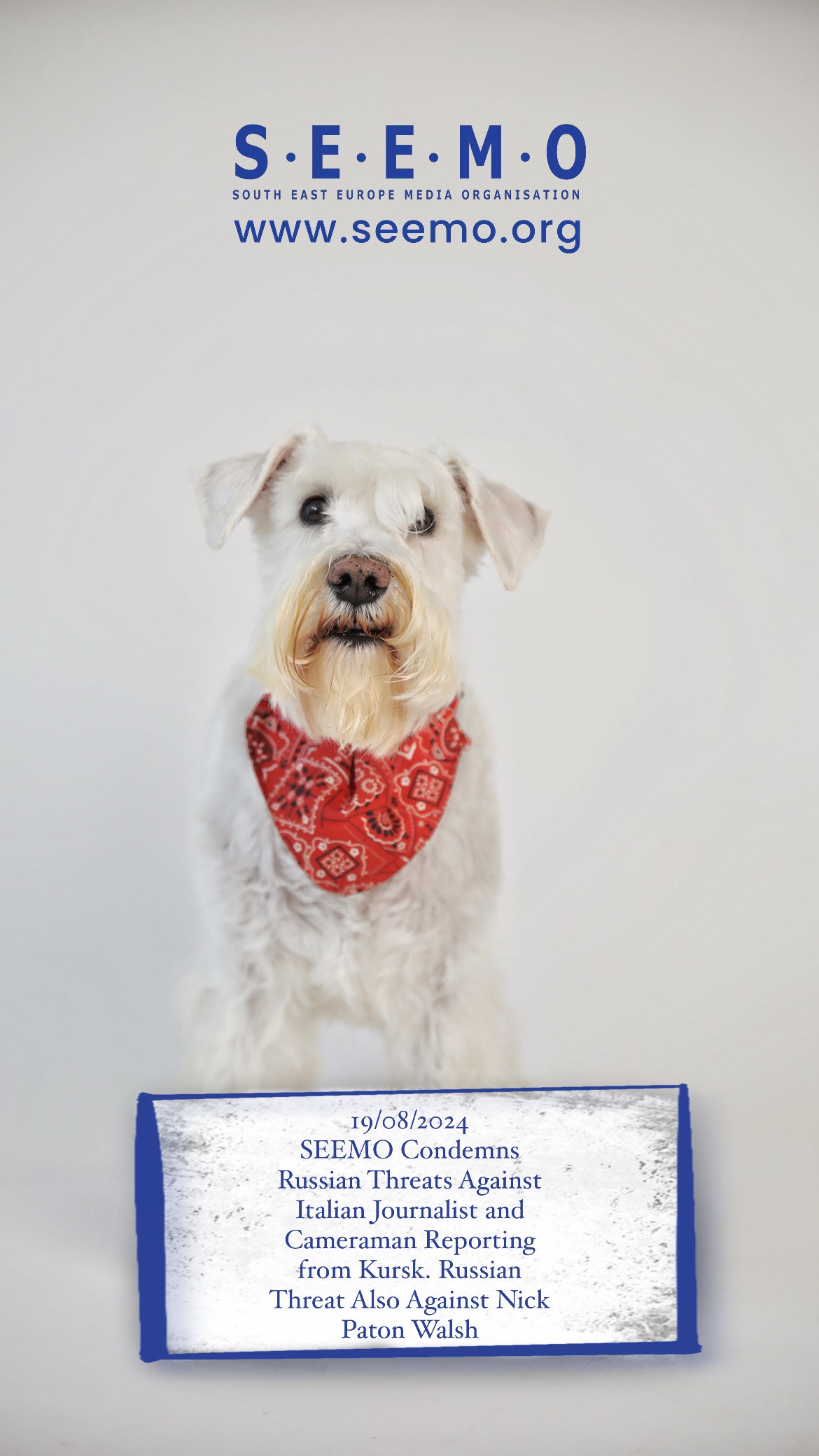Russian authorities have recently issued threats to prosecute two Italian media workers for their coverage of the Ukrainian offensive in the Kursk (Курск) region in Russia. Journalist Stefania Battistini and cameraman Simone Traini, who work for Italy’s national broadcaster Radiotelevisione italiana (RAI – https://www.rai.it/) for the news section TG1, were reportedly targeted after they reported on Ukraine’s incursion into the Russian town Sudzha (Суджа), administrative center of Sudzhansky District in Kursk Oblast, Russia.
On 16 August 2024, the Russian Foreign Ministry call for the presence the Italian ambassador in Russia Cecilia Piccioni, allegedly accusing the RAI news team of illegally crossing the border into Kursk Oblast. The Russian Federal Security Service (FSB) initiated criminal charges against the journalists under Article 322 of the Russian Federation’s Criminal Code, which pertains to the illegal crossing of state borders.
“The agency is also carrying out a legal assessment of the materials published in mass media, which prove the presence of [CNN] foreign reporter Nick Paton Walsh in the ‘Sudzha’ Russian border checkpoint, and a procedure decision will be made after the analysis is complete,” the FSB added in an official statement. The CNN report is online: https://edition.cnn.com/2024/08/16/europe/sudzha-russia-ukraine-streets-intl-latam/index.html. Nick Paton Walsh is a Emmy Award-winning Chief International Security Correspondent for CNN. CNN published a report with additional clear information that CNN was accompanied by the Ukrainian military who reviewed the video without sound prior to its release for operational security reasons. The Ukrainian military had no editorial control.
RAI brodcasted a report on 14 August 2024, showing the journalists drive into the Kursk region.
In light of these threats, RAI’s Managment announced that Battistini and Traini would temporarily return to Italy to ensure their safety. The Italian Foreign Ministry defended the journalists, emphasizing that they had operated independently and adhered to international law while covering the situation in Kursk Oblast. Both RAI and Italian press unions have strongly condemned the possibility of criminal charges, asserting that “journalism is not a crime” and that journalistic activities should not require prior authorization from the authorities.
Stefania Battistini and Simone Traini returned to Italy on Sunday 19 August 2024. Their courageous reporting has shed light on critical developments in the region, but their work has also made them targets of intimidation by the Russian government. This incident highlights the ongoing dangers faced by journalists covering conflicts and the importance of safeguarding press freedom in the face of such threats.
The South East Europe Media Organisation (SEEMO) condemns the Russian authorities’ threats to prosecute Italian journalist Stefania Battistini (@StefaniaBattis4) and cameraman Simone Traini for their courageous reporting on the Ukrainian offensive in Kursk, as also possible Russian steps against CNN reporter Nick Paton Walsh. These actions represent a clear attempt to stifle independent journalism and suppress the truth. SEEMO stands in solidarity with these journalists and will closely monitor the situation, urging the international community to ensure their safety and uphold the fundamental right to press freedom. The authorities in Russia must accept that free movement of journalists in a war is the basic of war reporting.
South East Europe Media Organisation (SEEMO) is a regional non-governmental, non profit network of editors, media executives and leading journalists in Southeast, South, East and Central Europe. SEEMO members are in Albania, Armenia, Azerbaijan, Belarus, Bosnia-Herzegovina, Bulgaria, Croatia, Cyprus, Czech Republic, Estonia, Georgia, Greece, Hungary, Kazakhstan, Kosovo, Kyrgyzstan, Latvia, Lithuania, Malta, Moldova (with the territory of Transdnestria), Montenegro, North Macedonia, Poland, Romania, Russia, Serbia, Slovakia, Slovenia, Tajikistan, Turkmenistan, Türkiye / Turkey, Ukraine and Uzbekistan. Austria, Italy, Vatican and San Marino have a special status in SEEMO. SEEMO has over 3000 individual members, and additional media as corporate members.
#fyp #mediafreedom #seemo #freespeech #southeasteuropemediaorganisation #ngo #journalist #russia #italy #RAI #StefaniaBattistin #SimoneTraini #journalistattacked #SEEMO #pressfreedom #mediafreedom #freemedia

